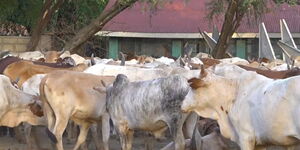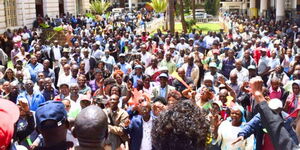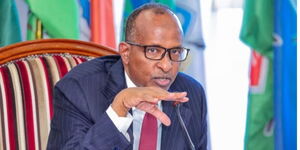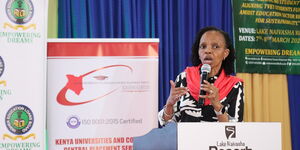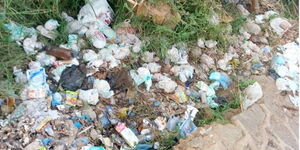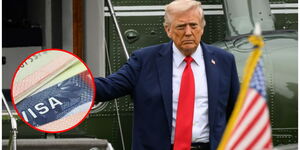The government on Wednesday, January 22, hinted at plans to partner with other countries to address funding gaps occasioned by the withdrawal of the US from the World Health Organisation (WHO).
During a media briefing by the Ministry of Health, Director General Patrick Amoth indicated that the government would be open to new partnerships with other countries that will act as donors in the critical health sector.
“Kenya is bolstering its health resilience through regional partnerships, increased domestic investments, and public-private collaborations,” stated Amoth.
“These efforts aim to secure health equity and sustain quality care for all Kenyans,” added Amoth while outlining the nation’s health strategy amidst global uncertainties.
The move was occasioned by the recent executive order by President Donald Trump that signaled the exit of the United States from WHO. The US is the biggest funder of WHO accounting for up to 20 per cent of the global body’s annual funding.
The withdrawal is expected to trigger a significant restructuring of the institution and could further disrupt global health initiatives.
Despite hinting at a new national health strategy, Amoth still emphasised the importance of global camaraderie in health matters citing the impact of previous collaboration between global states in disease prevention.
"Our plea is that collectively, we are safer together as a whole world while individual countries are at liberty to make any major decision that suits them. Following lessons learnt from most of these outbreaks we are only safer together as one global community," noted Amoth.
In response, the United Nations expressed its regret with the move by the US urging the country to reconsider its decision.
"WHO plays a crucial role in protecting the health and security of the world's people, including Americans. We look forward to engaging in constructive dialogue to maintain the partnership between the USA and WHO, for the benefit of the health and well-being of millions of people around the globe," stated UN spokesperson Tarik Jasarevic.
Meanwhile, the ministry reported that it had distributed 2.3 million doses of BCG and 7 million doses of Measles-Rubella vaccines to regional depots. This was after a widespread shortage had threatened to disrupt immunization efforts in the country.
Further, the ministry announced that additional shipments of Rotavirus, Pentavalent, and Oral Polio vaccines were expected to arrive by February 2025 to ensure uninterrupted immunization services.

